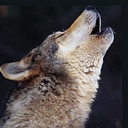"Hierarchy" and "kings" seem inherently inegalitarian.
''We can speculate as to why that happened..."
In that case, I will speculate.
One reason might be that the technology, as well as techniques for ruling and projecting power and authority, took time to develop.
I will gain from this experience by learning to choose my words more carefully. I will be more explicit from now on in describing how free will functions in the emergence of social structure. Also, I will consider replacing the word "environment" with "conditions and circumstances," which seems to be a more accurate term to convey my intended meaning.
One's neighbors are an aspect of one's circumstances. Your description of the situation between the Inuit and Athabascans reminds me of an article I once read (it was a long time ago. I have no way to locate it for citation). It was an account of traits that the author attributed to human nature. One of them was the "us" vs. "them" orientation. The author explained that individuals have a natural predisposition to identify as part of a group (us) and distinguish themselves from other groups (them).
It occurs to me that the situation between the Athabascans and the Inuit is a manifestation of that trait. In light of that, I am led to modify Morris's version of the Heinlein principle:
Progress is made by lazy, greedy, frightened, lonely people seeking ease, profit, safety, and companionship.
